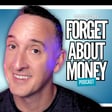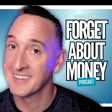
🥊 Financial Gurus Collide: JL Collins and Paul Merriman Debate Wealth Strategies📈
Subscribe and Watch on YouTube
💰Today, we bring you an exclusive conversation between two investment gurus, JL Collins and Paul Merriman. They debate the secrets of building wealth, focusing on investment strategies, index funds, and the potential power of small-cap companies.
If you're looking to sharpen your investment acumen, this episode is full of knowledge and insights! Join us as we navigate through the crucial aspects of long-term investing, risk management, and the dynamics of the S&P 500 and Total Stock Market Index Fund.
Paul and JL dissect the importance of diversification, disciplined strategies, and the psychology behind successful investing. Whether you're a seasoned investor or just starting out, this episode is packed with valuable tips and strategies for a robust financial future.
Free Fiology Money Course: https://www.fiology.com/free-fiology-workbook/
Paul Merriman's Free Books: https://www.paulmerriman.com/free-books
S&P 500 vs US SCV Equity Portfolio Table discussed in episode: https://irp.cdn-website.com/6b78c197/files/uploaded/-G-%20S-P500%20vs.%20SCV%20TableG1b.pdf
JL Collins' Blog: https://jlcollinsnh.com/
JL Collins' Books:
A Simple Path to Wealth: https://a.co/d/aSz8jhC
Pathfinders: https://a.co/d/3hS5p1g
📚 Don't forget to like, share, and subscribe for more insightful discussions on personal finance and investment strategies. Drop your thoughts in the comments below and let us know what topics you'd like us to cover next!
#InvestmentStrategies #WealthBuilding #JLCollins #PaulMerriman #FinancialIndependence #IndexFunds #SmallCaps #MarketVolatility #InvestmentPsychology #PersonalFinancePodcast

